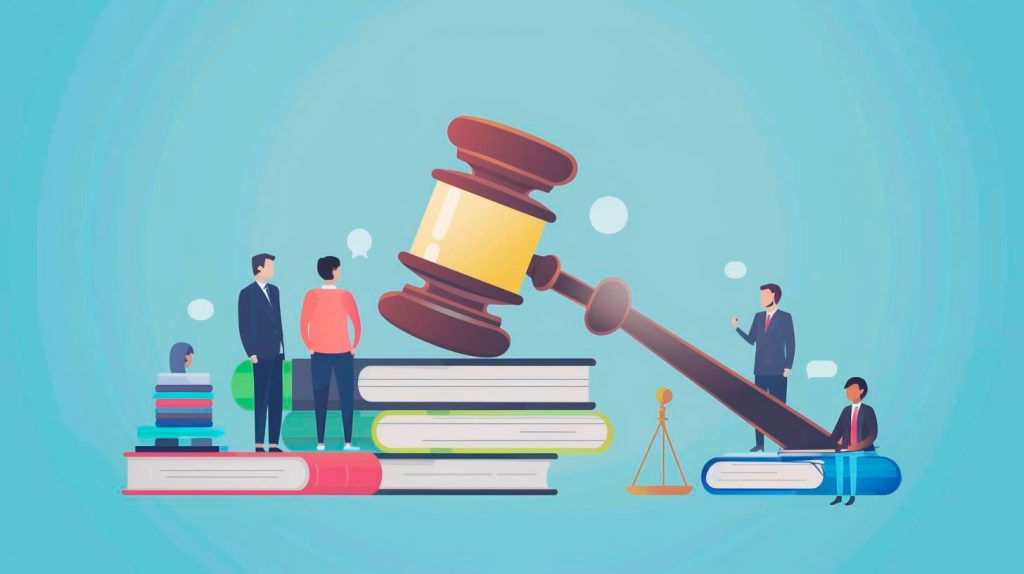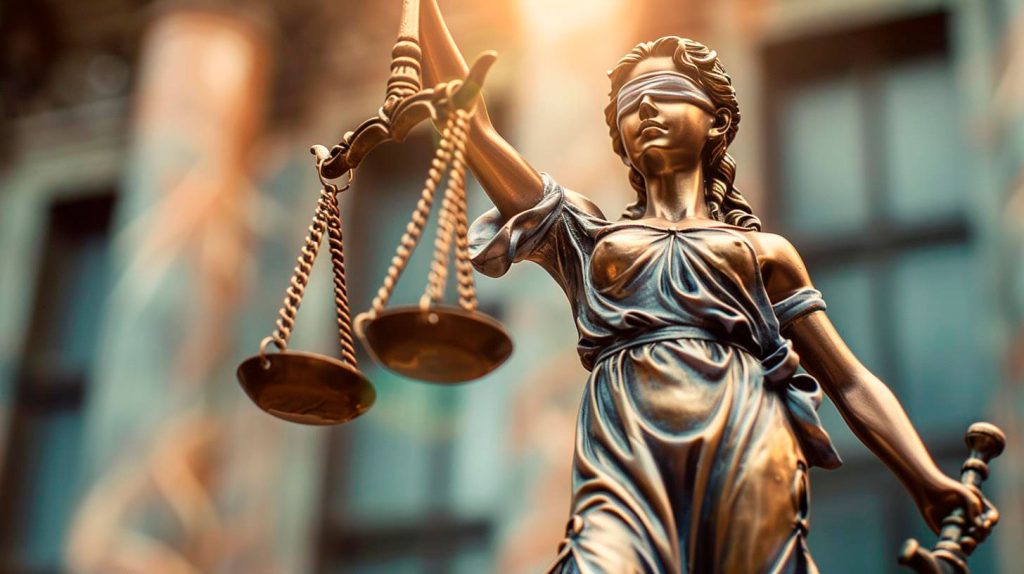
Resources and Support for Individuals with Criminal Records experiencing Credit Issues
Fortunately, there are resources and support available to help individuals with criminal records navigate these challenges and improve their credit standing.
Understanding the Impact of a Criminal Record on Credit
Having a criminal record can have a significant impact on an individual’s credit score. This is because criminal charges and convictions can lead to financial consequences such as fines, court fees, and restitution payments. Additionally, individuals with criminal records may struggle to secure stable employment, leading to financial instability and difficulty in meeting their financial obligations. As a result, their credit score may suffer, making it challenging to access credit products and services.
Resources for Individuals with Criminal Records
There are organizations and programs dedicated to providing support and resources to individuals with criminal records who are experiencing credit issues. These organizations offer financial education, credit counseling, and assistance with credit repair. They can help individuals understand their credit reports, dispute inaccurate information, and develop strategies to improve their credit standing.
Benefits of Seeking Support
- Improved financial literacy
- Access to credit counseling services
- Assistance with credit repair
- Resources for financial stability
- Opportunities for financial empowerment
By seeking support from these organizations, individuals with criminal records can gain the knowledge and tools they need to take control of their financial situation and improve their credit standing. This can open up opportunities for financial stability, access to credit products, and a brighter financial future.
Statistics on Individuals with Criminal Records and Credit Issues
According to a study by the Prison Policy Initiative, approximately 70 million Americans have a criminal record, which can impact their credit standing. Additionally, research conducted by the Consumer Financial Protection Bureau (CFPB) found that individuals with criminal records are more likely to have lower credit scores and face financial challenges compared to those without criminal records.
Tips for Individuals with Criminal Records
- Review your credit report regularly
- Seek assistance from organizations that specialize in helping individuals with criminal records
- Create a budget and stick to it
- Pay bills on time to improve your credit score
- Avoid taking on unnecessary debt
By taking proactive steps to address credit issues and seeking support from relevant organizations, individuals with criminal records can work towards improving their financial situation and achieving their financial goals. It is important for individuals in this situation to know that there are resources available to help them overcome these challenges and move towards a brighter financial future.
Steps to Take to Protect Your Credit After a Criminal Record
In this blog post, we will discuss the steps that individuals can take to protect their credit after a criminal record.
Obtain a Copy of Your Credit Report
One of the first steps that individuals with a criminal record should take is to obtain a copy of their credit report. This will allow them to see what information is on their credit report and identify any inaccuracies. By reviewing their credit report, individuals can ensure that they are aware of their current financial situation and take steps to improve their credit score.
Dispute any Errors on Your Credit Report
If individuals with a criminal record find any errors on their credit report, they should dispute them immediately. Inaccurate information on a credit report can have a negative impact on an individual’s credit score and financial well-being. By disputing errors on their credit report, individuals can have them removed and improve their credit score.
Consider Credit Repair Services
For individuals with a criminal record who are struggling to improve their credit score, credit repair services can be a valuable resource. Credit repair services can help individuals identify areas where they can improve their credit score and work with them to remove negative information from their credit report. By using credit repair services, individuals can take proactive steps to protect their credit.
Monitor Your Credit Score Regularly
Individuals with a criminal record should make it a habit to monitor their credit score regularly. By keeping track of their credit score, individuals can identify any changes or discrepancies that may occur. Monitoring their credit score allows individuals to take immediate action to protect their credit and financial well-being.
Limit Your Credit Applications
Individuals with a criminal record should be cautious about applying for new credit. Each time an individual applies for credit, it can result in a hard inquiry on their credit report, which can have a temporary negative impact on their credit score. By limiting their credit applications, individuals can protect their credit and improve their financial well-being.
Seek Legal Assistance
Individuals with a criminal record who are facing challenges with their credit should consider seeking legal assistance. A lawyer who specializes in credit and financial matters can help individuals understand their rights and take steps to protect their credit. Legal assistance can be invaluable for individuals with a criminal record who are looking to improve their credit score and financial well-being.
Protecting your credit after a criminal record is essential for maintaining financial stability. By following these steps and taking proactive measures, individuals with a criminal record can protect their credit and improve their financial well-being. It is crucial for individuals with a criminal record to be proactive about protecting their credit and seeking legal assistance when needed. By taking these steps, individuals can ensure that their credit remains in good standing and avoid further financial challenges.
The Impact of Criminal Records on Credit Scores
In this article, we will explore the repercussions of having a criminal record on your credit score and what steps you can take to mitigate the damage.
Understanding the Connection Between Criminal Records and Credit Scores
While criminal records and credit scores may seem unrelated, they can actually be closely intertwined. A criminal record can have a negative impact on your credit score in several ways. For example, if you have outstanding fines or court-ordered restitution payments related to your criminal record, failure to pay these debts can result in collection actions being taken against you, which will be reported to credit bureaus and lower your credit score.
In addition, a criminal record can also impact your ability to secure employment, which can in turn affect your financial stability and creditworthiness. Employers may conduct background checks as part of their hiring process, and a criminal record can raise red flags for potential employers, leading them to deny you employment opportunities.
The Statistical Impact of Criminal Records on Credit Scores
According to a recent survey conducted by the Society for Human Resource Management, 69% of employers conduct criminal background checks on all job candidates. This means that having a criminal record can significantly reduce your chances of being hired for a job, which can have long-term financial implications.
Furthermore, data from Experian, one of the major credit bureaus, shows that individuals with criminal records are more likely to have lower credit scores compared to those without criminal records. This is due to a variety of factors, including difficulty securing employment, potential financial hardships related to legal fees and fines, and the stigma associated with having a criminal record.
Steps to Improve Your Credit Score Despite a Criminal Record
While having a criminal record can pose challenges to maintaining a good credit score, there are steps you can take to improve your creditworthiness. First and foremost, it is important to be proactive in addressing any outstanding debts or financial obligations related to your criminal record. This may involve setting up payment plans or negotiating with creditors to settle outstanding debts.
Additionally, it is essential to monitor your credit report regularly to check for any inaccuracies or errors that may be negatively impacting your credit score. You can request a free copy of your credit report annually from each of the three major credit bureaus – Equifax, Experian, and TransUnion – and dispute any discrepancies you find.
The Benefits of Seeking Legal Assistance
If you are struggling to navigate the complexities of managing a criminal record and its impact on your credit score, seeking legal assistance can be beneficial. A knowledgeable attorney can help you understand your rights and options for addressing outstanding debts, expunging or sealing criminal records, and advocating on your behalf with creditors and credit bureaus.
Furthermore, legal assistance can provide peace of mind and guidance in navigating the legal system and understanding the potential consequences of having a criminal record on your credit score. By working with a skilled attorney, you can take proactive steps to protect your financial future and improve your creditworthiness despite the challenges posed by a criminal record.
- Address outstanding debts related to your criminal record
- Monitor your credit report regularly for inaccuracies
- Seek legal assistance to navigate the complexities of managing a criminal record
While having a criminal record can have a detrimental impact on your credit score, it is not a hopeless situation. By taking proactive steps to address outstanding debts, monitor your credit report, and seek legal assistance, you can improve your creditworthiness and financial stability. Remember that everyone deserves a second chance, and with the right support and guidance, you can overcome the challenges posed by a criminal record and achieve financial success.
Common Ways Criminal Records Can Hurt Your Credit
Here are some common ways criminal records can hurt your credit:
1. Difficulty in Finding Employment
Individuals with criminal records often face challenges in finding gainful employment. Many employers conduct background checks on potential employees, and a criminal record can be a red flag that may impact your chances of getting hired. This can lead to financial instability and make it difficult to pay off debts, ultimately affecting your credit score.
2. Limited Housing Options
Landlords and property management companies also commonly conduct background checks on prospective tenants. A criminal record can make it difficult to secure housing, forcing individuals to settle for subpar living conditions or face homelessness. Unstable housing situations can contribute to financial stress and impact your credit score in the long run.
3. Higher Interest Rates on Loans
Having a criminal record can result in higher interest rates on loans, including credit cards, personal loans, and mortgages. Lenders view individuals with criminal records as higher risk borrowers and may charge higher interest rates to offset that risk. This can result in higher monthly payments and make it harder to manage debt effectively.
4. Difficulty Obtaining Professional Licenses
Many professions require individuals to obtain professional licenses or certifications. Having a criminal record can make it challenging to obtain or renew these licenses, limiting your career opportunities and earning potential. This can have long-term financial implications and impact your ability to maintain good credit.
5. Limited Access to Financial Resources
Individuals with criminal records may have limited access to financial resources, such as bank accounts, credit cards, and other financial services. This can make it difficult to build credit or improve your credit score over time. Without access to these resources, it can be challenging to achieve financial stability and security.
6. Increased Stress and Mental Health Issues
Coping with the consequences of a criminal record can lead to increased stress, anxiety, and mental health issues. This can affect your ability to make sound financial decisions and manage your credit effectively. Seeking support and resources to address these challenges is essential in maintaining financial health and minimizing the impact on your credit score.













Yeah, having a criminal record can definitely harm your credit score. It’s like a black mark on your financial history that lenders and creditors take into consideration when determining your creditworthiness.
So, like, if you have a criminal record, does that mean you’ll never be able to have good credit again? Is there any hope for someone in that situation?
Having a criminal record could result in you being denied credit altogether, or being charged much higher interest rates. It’s important to be proactive in monitoring your credit report and addressing any inaccuracies.
Can you like dispute a criminal record on your credit report if it’s not accurate? I don’t want something that’s not even true messing up my credit score!
Having a criminal record can impact your credit score because it can affect your ability to get a job or to make money. This may result in missed payments or defaulting on loans, which can lower your credit score.
Like, I heard that even if you pay off all your debts and keep up with your bills, having a criminal record can still drag down your credit score. Is that true?
Having a criminal record can make it difficult to rent an apartment or get approved for a mortgage. It can also lead to higher interest rates on loans, which can cost you a lot of money in the long run.
Yo, I heard that having a criminal record can stay on your credit report for like seven years. Is that true? How can you get rid of it sooner?
So, like, does having a criminal record automatically mean your credit score will go down? Can you do anything to fix it? I need answers, man!
Having a criminal record doesn’t have to mean the end of your financial prospects. By actively working on improving your credit and demonstrating responsible financial behavior, you can still achieve a good credit score over time.
Yo, criminal records can totally mess up your credit score, man. Like, if you got some charges on your record, it can make it hard to get approved for loans or credit cards. It’s a total bummer.